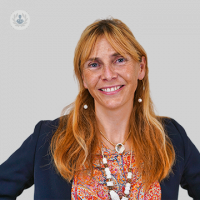What can we do to promote our own mental health and well-being?
Escrito por:Looking after our mental health needs to become part of our routine, like exercising, drinking water and eating healthily. Similarly, it requires regular attention or our skills fade and there are always new things we can learn, explore and do. Dr Morwenna Opie, a clinical health psychologist and expert in mindfulness therapies shares her advice on how we can start our own journey of well-being and self-care.

How can we start to prioritise our mental health and well-being?
The begin with, it is important that we set time aside to reflect on our direction and to make sure we are dedicating time and energy to things that we love and things which create a vibrant life for ourselves. It is important that the bulk of the time we are present in our lived experience and being mindful. Self-compassion and self-care are real buzz-words at the moment, but we really have become bad at being as good to ourselves as we are to others, somehow thinking it is ok to bully ourselves or neglect ourselves as long as we do not do that for others. This really sets up an unsustainable and unfulfilling pattern of existence.
What do you recommend as a first step for self-care?
Getting patients to do small acts of self-kindness is a common early, between-session task which is informative as well as transformative. If this sounds like a very small intervention to bring a big change – it is. Generally it is lots of small changes, rather than an unsustainable life-style upheaval, that bring about big changes.
Many so-called lifestyle illnesses are on the rise and changing our behaviours can be a real challenge, but one where psychologists can help. The best way to make lasting habits is to do so in the spirit of self-care, positivity, choice and encouragement (rather than self-criticism, bullying and denial).
What do we need to understand about mental illness?
I would really like to challenge any idea that people who succumb to mental health illnesses are somehow less ‘strong’ than those who do not. In fact, time and time again I see quite the reverse. It takes courage to acknowledge our struggles and to seek help – burying our head in the sand and covering up our struggles are often easier. In fact, people who are so tough that they carry on a long while despite all their pain often present with the most severe forms of mood and anxiety disorders.
When these people do reach out for help, they are so out of tune with their physical and emotional experiences that early therapy sessions can be just about learning to identify what they are feeling, before we can move onto what to do to help. Furthermore, I think it is really interesting that people who as children had a lot of illness or surgeries, and came to carry on through pain, are especially prone to this disconnect between pain and suffering and conscious awareness.
What about mindfulness?
Mindfulness is an excellent way to promote our well-being. Essentially, mindfulness means being aware in the present moment, with acceptance, by which we mean a sense of openness and curiosity to what might come. If you think about it, a lot of what we worry about and what brings us suffering are not happening in the here and now, but when we reflect on the past or we get preoccupied about what might happen in the future.
This can apply as well to physical pain, for example, where the real suffering with pain often comes from fear that it's going to get worse, whereas when we focus on right now we often realise that things may be far from perfect, but we can manage them. If we apply this reasoning, we are more able to throw our attention into what is evolving and all the beauty, excitement and the intrigue that surrounds us in our day to day life.
Meditation is one form of mindfulness and it is something I love and I try to practice even if just for a few minutes every day. However, it is not everybody's cup of tea and it is important to realise that there are lots of ways of helping us focus on the present moment and to be open to exploring what is happening around us.
Being mindful can apply to everything that we do. We can walk mindfully, eat mindfully out and even wash-up mindfully, and what it is about is helping us to let go of those ‘what ifs’ and all of those fears about what we may or might have said and to really live in the present moment. By doing this we are better able to take on and appreciate all that this very varied and interesting life has to offer us.
To speak with a specialist about your mental health and well-being, make an appointment here.



